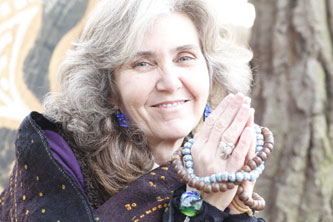Grandmother Margaret Behan
 Grandmother Margaret Behan is Arapahoe-Cheyenne, fourth generation of the Sand Creek Massacre. She was born into the Cheyenne Beaver Clan on her mother’s side, and the Rabbit Lodge on her father’s Cheyenne/Arapaho side. Though Margaret attended the Catholic Mission and Government Boarding Schools as a child, her parents shared important tribal stories and lessons with her so that she would remember her culture. Under her mother’s tutelage, Margaret learned beadwork, the art of working with buckskin, as well as the sacred designs of her tribe.
Grandmother Margaret Behan is Arapahoe-Cheyenne, fourth generation of the Sand Creek Massacre. She was born into the Cheyenne Beaver Clan on her mother’s side, and the Rabbit Lodge on her father’s Cheyenne/Arapaho side. Though Margaret attended the Catholic Mission and Government Boarding Schools as a child, her parents shared important tribal stories and lessons with her so that she would remember her culture. Under her mother’s tutelage, Margaret learned beadwork, the art of working with buckskin, as well as the sacred designs of her tribe.
Margaret is a Cheyenne traditional dancer. She has served as a dance leader in Oklahoma and in powwows across the U.S. A sculptress for 30 years, she creates clay figurines that have won her many honors, including shows at Eastern New Mexico University, University of Wisconsin, Santa Fe Indian Market and the Gallup Inter-Tribal Ceremonial. Margaret is also an accomplished and published author, poet and playwright.
In addition to her many artistic talents, Margaret is dedicated to helping others overcome substance abuse. She has presented workshops and retreats for women, adult children of alcoholics and co-dependents. “It has only been the last two hundred years that we have become chemically dependent,” she says. “We can turn back to being the very powerful people we were. Powerful people are free and liberated people … I know the ancient ways that we bring to this table from each of our traditions will make a difference.”
Grandmothers Council. Currently Margaret is taking an active role as leader of her tribe, as a teacher of Cheyenne Culture and the President of the Cheyenne Elders Council. Grandmother Margaret and the Cheyenne Elders Council are currently hosting the 11th Gathering of the International Council of the Thirteen Indigenous Grandmothers. The Gathering will take place in the traditional way on the Cheyenne land, sharing her message that Gratitude Brings Freedom. Click here to watch a brief video about the Grandmothers.
Margaret carries a deep respect and connection to the her tribal roots, which is evident in all she does. She not only brings this forward as she shares her traditions with us, but she is a role model for overcoming the challenges that we each face day to day. She calls on the ferocity of her lineage to uplift us in the present and shares a message of gratitude being the fastest way our spirits can grow.
“If we want to see changes first of all we need to be in peace inside ourselves, and then we need to be patient with the ones that have not yet arrived in that place of peace.“
Arvol Looking Horse
 Arvol Looking Horse is the 19th generation keeper of the White Buffalo Calf Pipe Bundle and holds the responsibility of spiritual leader among the Lakota, Dakota and Nakota People. He holds an honorary Doctorate from the University of South Dakota, and travels and speaks extensively on peace, environmental and native rights issues. He has been the recipient of several awards, including the Wolf Award of Canada for his dedicated work for peace. A skilled horseman, he shares his knowledge with the youth on the long distance rides that take place in South Dakota throughout the year. He is on the board of the Wodakota Foundation, an outgrowth of the annual World Peace and Prayer Day (WPPD) celebrations he started in 1996.
Arvol Looking Horse is the 19th generation keeper of the White Buffalo Calf Pipe Bundle and holds the responsibility of spiritual leader among the Lakota, Dakota and Nakota People. He holds an honorary Doctorate from the University of South Dakota, and travels and speaks extensively on peace, environmental and native rights issues. He has been the recipient of several awards, including the Wolf Award of Canada for his dedicated work for peace. A skilled horseman, he shares his knowledge with the youth on the long distance rides that take place in South Dakota throughout the year. He is on the board of the Wodakota Foundation, an outgrowth of the annual World Peace and Prayer Day (WPPD) celebrations he started in 1996.
Paula Horne
 Paula Horne is an accomplished traditional Dakota singer and artist. Her musical credits include opening for the Indigo Girls, touring Europe with Keith Secola and other notible native artists, and composing and producing her own cd, Songs of a Black Hills Woman. She has been involved in Indian rights for over 20 years, organizing the Run to Pipestone and Thanksgiving Feast and is one of the original graduates of Red Schoolhouse in Minnesota and a subsequent board member. She brought her organizational skills to World Peace and Prayer Day in 1996 and has been a moving force in creating the events ever since. She is also the mother of eight children.
Paula Horne is an accomplished traditional Dakota singer and artist. Her musical credits include opening for the Indigo Girls, touring Europe with Keith Secola and other notible native artists, and composing and producing her own cd, Songs of a Black Hills Woman. She has been involved in Indian rights for over 20 years, organizing the Run to Pipestone and Thanksgiving Feast and is one of the original graduates of Red Schoolhouse in Minnesota and a subsequent board member. She brought her organizational skills to World Peace and Prayer Day in 1996 and has been a moving force in creating the events ever since. She is also the mother of eight children.
